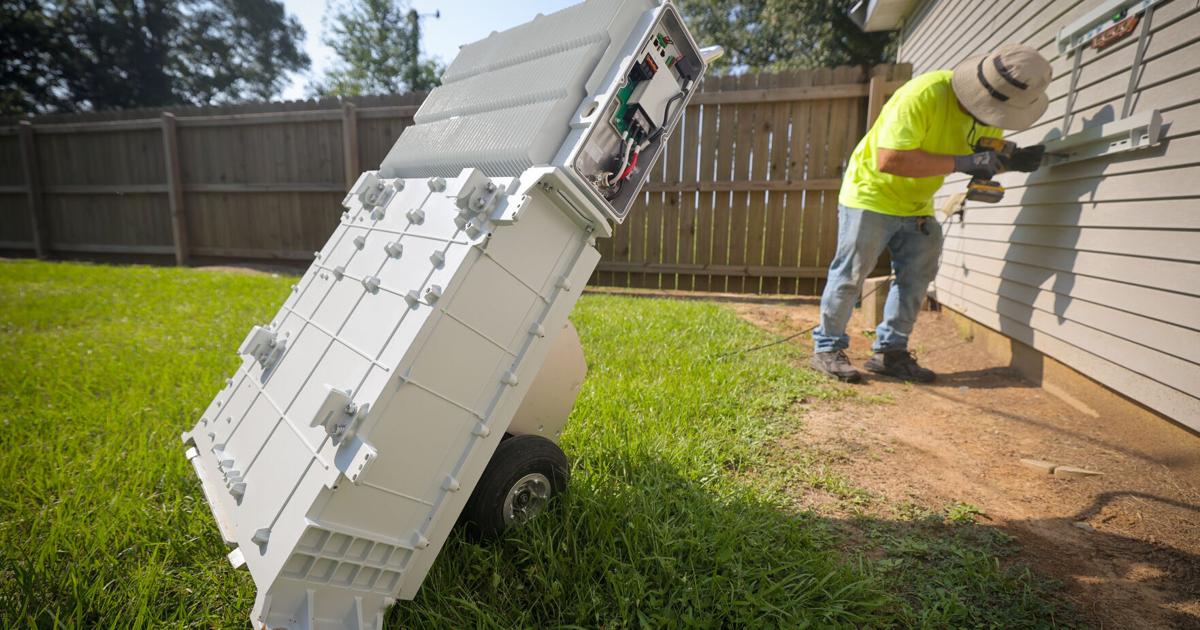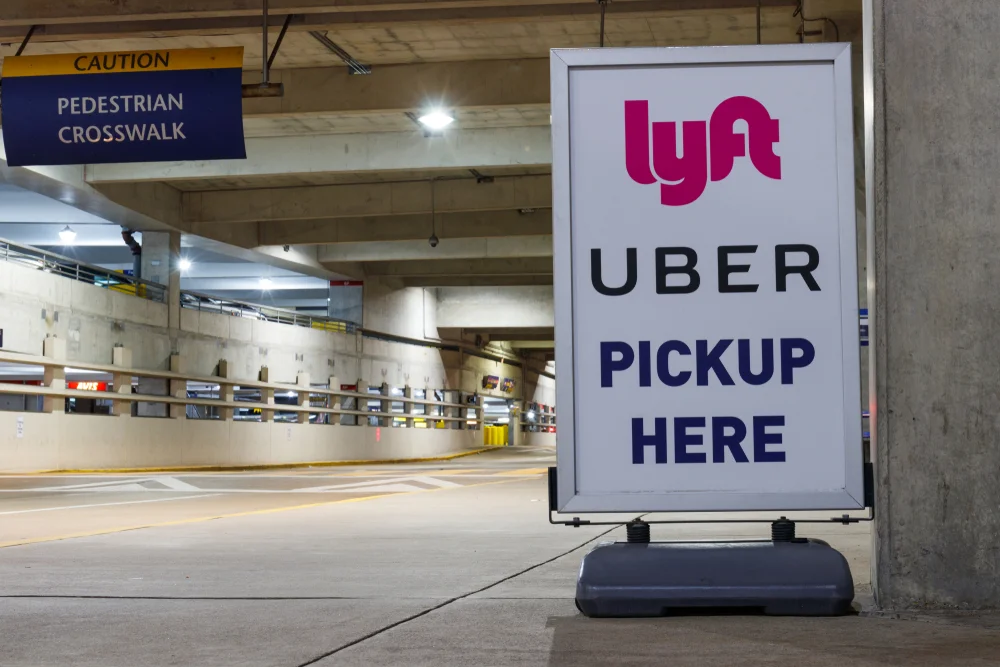
New Orleans-based Solar Alternatives has been installing rooftop solar panels along the Gulf Coast for 17 years.
For most of that time, only about a quarter of the company’s customers chose to bolster their solar equipment with backup batteries that would allow their homes or businesses to function during a power outage.
That changed in 2021, when Hurricane Ida left thousands of homes and businesses in Louisiana without power for weeks. Today, 75% of Solar Alternatives’ customers buy batteries.
“During Ida, not everyone with batteries had a perfect experience, but people who used them went weeks without a grid in some cases and had power,” said Jeffrey Cantin, Solar Alternatives owner. “Those stories started getting out, and that’s when people really started seeing the tech proven out.”
Fueled by cheaper and better batteries, worsening grid instability and federal incentives, batteries for homes and businesses are rising in popularity. In 2024, the number of installations jumped 64% over the previous year, Bloomberg reported. Trade groups predict the market will top $43 billion a decade from now.
So far, only about 10% of the roughly 10,000 homes in the Greater New Orleans area with solar equipment have battery systems. But the number is growing as the trend catches on, Cantin said.
Uptown resident Z Smith, an architect at Eskew+Dumez+Ripple, is an early adopter. He purchased two battery systems while increasing the number of solar panels at his family’s home in 2020. He pays a small monthly connection fee to Entergy in lieu of a regular utility bill and has remained cool through outages ever since.
“During the Ida grid outage, we were baking cookies in the middle of the day, and invited friends and family over to use our a/c,” he said. “We’d check with our neighbors to see if anybody needed ice.”
It’s not just about reliability and comfort. Last year, Smith signed up to participate in an Entergy pilot program that offers incentives to allow the utility to activate his batteries during times of peak grid usage.
“We got a check for $600,” he said. “It’s a sweet deal.”
‘A little bit cheaper but a lot smarter’
The growth of the residential and business battery market follows the rise in popularity over the past 20 years of electric vehicles, which are powered by in-home battery systems like Tesla’s Powerwall.
Over the years, the technology has advanced, enabling battery systems to do more while saving users money.
“There have been major improvements to the components that convert the power and connect to an electrical panel as well as the app experience,” said Cole Ashman, a New Orleans native and Tulane alumnus who launched a San Francisco-based battery startup last year. “That results in easier installations, labor savings and more data that can be used to optimize power usage.”
Today’s smart batteries help homeowners save money by optimizing energy usage, said Ashman, who spoke last week at the Tulane Future of Energy Forum. They can also help customers potentially make money by taking stress off the power grid.
“Batteries have gotten a little bit cheaper but a lot smarter,” he said.
His company, Pila, aims to make batteries even more accessible by selling “plug-and-play” devices that customers can use without any permitting to provide emergency backup power for refrigerators and other essential appliances. His products are due to roll out next year.
In Louisiana, customers will almost always pair batteries with solar panels. But in other states, especially those that charge different prices for energy depending on demand, there may be incentives to buy batteries on their own, charging them with grid power when it’s cheap and using it during peak times.
Ashman, who remembers New Orleans’ frequent power outages from his childhood, is part of a growing group promoting the power of batteries in homes and businesses to be networked together to form a “virtual power plant,” relieving stress on a utility’s power grid in times of high demand.
His company is among those supporting a proposal for a multimillion public investment to create a virtual power plant in New Orleans.
The nonprofits Together New Orleans and the Alliance for Affordable Energy are leading the project, which is modeled on others in Puerto Rico, California and other locations.
The New Orleans City Council opened a docket and allocated money to potentially greenlight a plan last year, and supporters are hoping for more action soon.
Disappearing incentives and patchwork policies
President Donald Trump’s One Big Beautiful Bill Act, passed by Congress in July, poses a threat to the growth of the battery storage market, at least in the short term.
Federal subsidies for residential solar and batteries will dry up at the end of year, though there will be a longer and more complicated sunset for commercial credits that will last until the next decade.
“It’s a nuanced federal policy climate,” said Pierre Moses, a renewable energy developer and Tulane professor. “Some Biden-era incentives were attacked significantly (in the Big Beautiful Bill) while others were extended.”
Cantin of Solar Alternatives said the changes don’t mean the industry will grind to a halt.
“It just means that if people don’t finish their battery projects before the end of the year, they will be more expensive,” he said. “There will be a rush at the end of the year, and it’ll take some time to grow back to where it was.”



